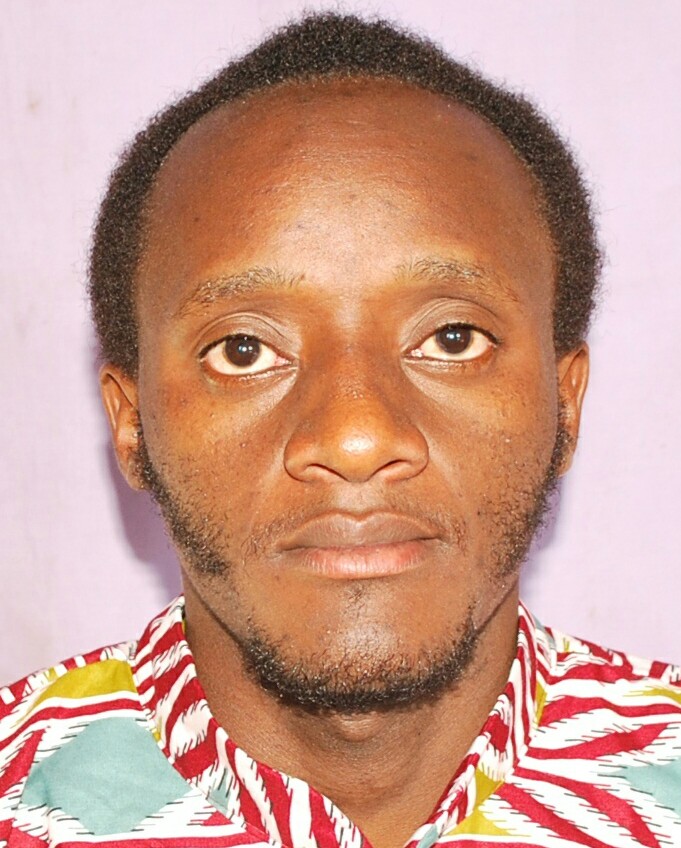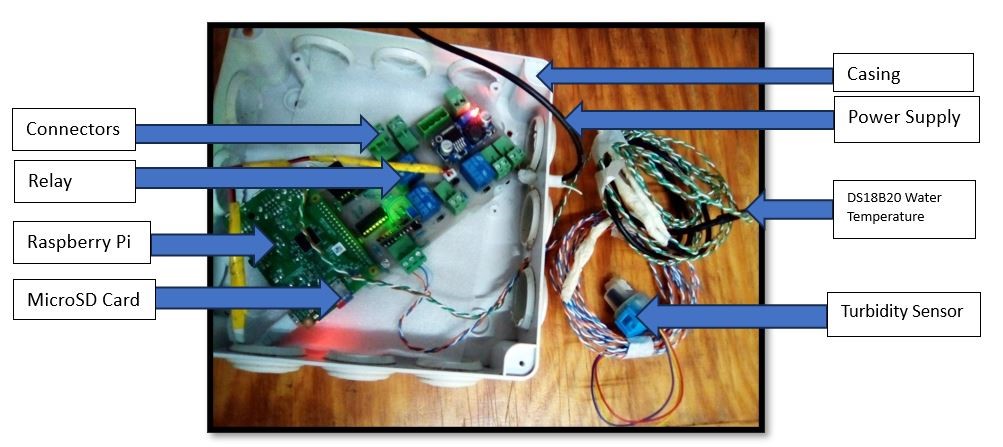Introduction
In this blog post, I will take you on a captivating journey through my scholarship expedition. After completing my undergraduate studies, I knew I aspired to become a Data Engineer, but the path to achieving this dream remained unclear. While the idea of pursuing a master's degree always lingered in my mind, Postgraduate studies away from my homeland was indistinct for me. However, my perspective changed drastically when two of my friends secured prestigious scholarships at renowned institutions abroad. One earned the DAAD scholarship to University of Potsdam in Germany, and the other received the Stipendium Hungaricum scholarship to the University of Debrecen in Hungary. Their achievements sparked a desire within me to explore international educational opportunities. The allure of studying internationally infected me with the desire to explore available options. Join me as I recount my pursuit of higher education abroad, a journey filled with vicissitudes that eventually led me to the doorway of Queen Mary University of London.
Are you sure you want to try this?
The DAAD Scholarship
With excitement and hope, I started my very first scholarship application attempt, the DAAD scholarship by the government of Germany. However, the massive application form, presented in both English and German, was a bit overwhelming, I was startled and for weeks wasn’t sure as to whether I wanted to carry on. A key requirement for applicants was to have at least two years of experience working or volunteering in their proposed field of study for a master's degree. Since I had recently started my very first career role as a research intern, I made the common mistake newbies make - disqualifying myself.I ended the application there.
The Rhodes scholarship
The prestigious Rhodes scholarship to Oxford University followed suit. As a highly
revered and competitive scholarship,
it is an opportunity any scholar would endeavor to pursue. Being a competitive
scholarship,
it had only five available
positions. Driven by ambition, I embarked on this application journey as well. Along
the
way, I discovered that having a
passport was a prerequisite for successfully submitting the application.
Regrettably, I
didn’t have one at the time, and
this esteemed scholarship slipped through my fingers.
It was crystal clear that I needed to consolidate my documents before attempting
further
applications.
It is just the beginning …
Machine Learning and Artificial Intelligence Scholarship to Stellenbosch University
Soon afterwards, an exciting opportunity arose at Stellenbosch University in South
Africa for a fully funded Master's
program in Machine Learning and Artificial Intelligence. Determined to seize this
chance, I promptly began the
application process. This particular application had a two-step approach – first,
applying to the School of Computer
Science for acceptance into the program, and then having the opportunity to be
considered for funding.
I worked diligently to meet all the requirements, which included writing compelling
motivation letters and a detailed
research statement. I also carefully curated my resume to showcase my skills and
experiences. Finally, I submitted my
application with great hopes.
After a couple of months filled with anticipation, an email arrived. "Dear
applicant, thank you for your interest..." I
read with excitement. However, my elation soon fizzled out as the email continued,
"I regret to inform you that we
received a voluminous number of applications..." Ouch! The gates to Stellenbosch
University won’t open this time.
The AIMS Senegal Scholarship
Still in 2022, a new beacon of opportunity emerged. The African Institute of
Mathematical Sciences (AIMS) unveiled
scholarships for master's programs in Mathematical Sciences under the ambitious
campaign "Next Einstein will be
African." The prospect of becoming part of this transformative initiative piqued my
interest, and I seized the chance to
apply once again.
Three months later, an email notification brought familiar emotions to the surface.
"Dear applicant, we appreciate your
interest in the AIMS Senegal Scholarship. However we regret to inform you that ..."
The words echoed with a bittersweet
resonance, another chapter of hope and potential culminating in a closed door.
The Stipendium Hungaricum Scholarship
It was not long before the Stipendium Hungaricum Scholarship by the Hungarian
government was announced, which is a
promising pathway for international students to pursue their studies at Hungarian
universities. Captivated by the MSc
computer science programs offered by the University of Debrecen and the University
of Szeged, I enthusiastically
embraced this opportunity and decided to submit an application for this esteemed
scholarship.
Applications for this scholarship involved the sending government in the selection
process. In addition to online
submissions, candidates were also required to provide hardcopy applications to the
designated sending partner—in my
case, the Ministry of Education in Kenya. This sending partner would then nominate
their preferred scholars for the
scholarship. I made my applications to both universities and a separate one to the
scholarship committee. After this, I
submitted my hardcopy application to the Ministry of Education ensuring they were
all certified by a commissioner of
oaths (at a cost of course). Unfortunately, after waiting for months, a rejection
email came! Ouch!
The Mandela Rhodes Scholarship
During my ongoing search for opportunities, the Mandela Rhodes Scholarship, offered
by the Mandela Rhodes Foundation in
South Africa, captured my attention. This prestigious scholarship not only provided
financial support but also
mentorship and leadership development. Intrigued by its prestige, I decided to give
it a shot. I reached out to my
referees (three in total) who agreed to provide the necessary reference letters for
my application. Additionally, I
crafted compelling essays as required, addressing topics like leadership, conflict
resolution, and peace enhancement.
While the essay writing phase was daunting, I successfully completed and submitted
my application.
In the following weeks, my referees were contacted for their references, this
sparkled my hopes. However, after a month
of anticipation, a bittersweet rejection email arrived. It kindly explained that the
panel had received an overwhelming
number of applications, making decisions a challenging task. This marked the second
time I had faced disappointment
within a year, as I missed out on Stellenbosch University once again.Oh boy!
The Dawn ...
Wanna go to Cambridge?
Cambridge? I mused to myself, a voice of doubt echoing alongside my aspirations. It
was October 2022 when I stumbled
upon the
Mastercard Foundation scholarship to the University of Cambridge. Despite
facing consistent failures, the
allure of Cambridge persisted in my mind. "The worst I can get is a rejection," I
reasoned out. Am I not even accustomed
to disappointments? I cajoled myself.
With renewed determination, I decided to take
the leap and give it a shot.
With hope and a dash of skepticism, I embarked on the application process. The
scholarship required an offer from
Cambridge, so I began by applying for the MPhil Advanced Computer Science program at
the Department of Computer Science.
Thanks to the Mastercard Foundation, the application fee was waived – a small yet
significant assistance. After
expressing my research interests on paper to secure a study offer, I shifted my
focus to the scholarship application,
aiming to secure funding for my studies.
The scholarship focused on environmental conservation and was tailored to African
students. Crafting a motivation letter
that highlighted the impact of my chosen course on conservation, I felt a surge of
confidence. My experiences in DSAIL,
particularly my work on Bioacoustics for environmental monitoring using Bats, gave
me the assurance to convey my ideas
effectively.
Upon submitting my applications, I reached out to my referees for recommendations.
Despite my haste in requesting them,
they didn't hesitate to support me – for that, I am truly grateful. A month later,
on January 25, 2023, I received an
invitation for a virtual interview with two professors from Cambridge's Department
of Computer Science. A mix of
excitement and nervousness overwhelmed me. On the interview day, I dressed in a
suit, set up an external microphone and
webcam, and even indulged in a haircut for good measure. The interviewer, who would
later become my supervisor, praised
my blazer, setting a positive tone for the interview. To my surprise, the interview
was not the intimidating ordeal I
had anticipated. The interviewer was cordial, after a couple of technical yet
manageable questions, we engaged in a
30-minute conversation delving into career advice. The experience was amazing!
Weeks later, a Friday evening found me lounging on my couch, weary and contemplating
the upcoming long weekend.
Interrupting my thoughts was an email notification with the subject line,
"University of Cambridge Conditional Offer of
Admission." My heart raced as I read the email; I had secured admission to Cambridge
for my postgraduate studies.
Elation coursed through me. Some weeks later, another email arrived, revealing that
I had been assigned to Girton
College (for I had made an open application – without specifying my college of
choice).
Unfortunately, the Mastercard Foundation funding did not materialize for me. As of
this writing, I hold a nomination for
the Commonwealth Shared Scholarship, placed on the reserve list. This status means
that I could be promoted to a
scholarship holder if one of the initial recipients declined their offer. This
however heightened my aspirations.
It's Time
Following a conversation with my director,
I received valuable
advice to cast a wide net by
applying to multiple potential universities. Acting on his counsel, I compiled a
list of universities that didn’t charge
application fees. This included the University of Sussex, University of Glasgow,
University of Warwick, Durham
University, University of Edinburgh, and Queen Mary University of London.
Subsequently, I received conditional offers
from the majority of these institutions. I also submitted an application to the
African Institute of Mathematical
Sciences (AIMs), this time opting for their Ghana Campus.
Sometime later, I chanced upon a LinkedIn post announcing a Google DeepMind
scholarship opportunity at Queen Mary
University of London. The eligibility criteria specified that applicants should
identify as black, with the scholarship
aiming to increase representation of underrepresented groups in AI. Additionally,
applicants were required to hold an
unconditional offer for a postgraduate course in AI, Computer Science, ML, or Gaming
at Queen Mary. As I met these
criteria, I eagerly submitted my application.
The turning point came on June 28, 2023, it was a public holiday as it marked
"Eid-Ul-Adha," - the culmination of the
annual pilgrimage to Mecca and therefore I was not in office, thank you to our
Muslim counterparts. I was at home,
engrossed in a script for my bioacoustics project when an email notification
appeared. Initially dismissing it as
routine promotional emails, I later opened my mailbox to find an unread email with
the subject line "Google DeepMind
Scholarship Outcome." As I read the message, it began to sink in - "Mr. ..., we are
delighted to notify you that your
application to be considered for the
Google DeepMind Scholarship was successful. Congratulations..." I pinched my
cheeks
to ensure I was awake, repeatedly reading those words. With a mixture of emotions, I
hesitated to share the news, though
I needed confirmation that this was indeed real.
In the following weeks, during the season of celebrations, I received another
congratulatory email from AIMS, indicating
that I had been considered for a scholarship at their Ghana campus. Additionally, I
held a scholarship for an MSc
program offered by our lab - DSAIL, which is hosted at Dedan Kimathi University of
Technology (DeKUT). After careful
contemplation and consultation, I made the decision to accept the DeepMind
scholarship at Queen Mary University of
London.
General Advice to Prospective Scholarship Applicants
My scholarship journey has underscored the importance of determination, persistence, and patience. Rejections are part of the process; do not let them deter you. Building a strong network of referees, preferably university lecturers who can attest to your academic capabilities, is crucial. Before embarking on applications, ensure all required documents are prepared and organized. Having a project or significant work experience to discuss can be invaluable, especially for interviews.
ACKNOWLEDGEMENT
I would like to express my gratitude to Dr. Ephantus Mwangi, Dr. Jotham Wasike, and Dr. Jeremiah Kinyanjui, all senior lecturers at Kirinyaga University, for agreeing to serve as my referees. Special thanks go to Prof. Ciira wa Maina, Director of the Centre for Data Science and Artificial Intelligence (DSAIL) and a professor at the Department of Electrical and Electronic Engineering, Dedan Kimathi University of Technology (DeKUT), for his mentorship, guidance, and numerous reference letters. I am immensely grateful. Lastly, I want to acknowledge Purity Kavwele, an MSc student at the University of Potsdam, for her unwavering encouragement and advice throughout this process. A big shoutout to all of you.



